
As a Product Manager, here’s how I *actually* use ChatGPT at work
I know I’ve been reading too much Reddit when I start encountering threads titled: ‘will Product Managers be replaced by AI?’
Long-term? Like 30 years from now? Who knows. The role will most likely evolve due to a combination of factors I’ll never be able to predict.
In the short-term: no. Not unless you think your hot-blooded senior leaders would happily be told ‘no’ in response to their new feature idea by a computer and go about their day.
GPT is a language model trained on past data. It does not know current trends or market dynamics, and by that definition, should struggle to innovate or create anything ‘new’.
That being said, I’ve found ChatGPT can make my job just a bit easier — here are a few ways I’m using ChatGPT in my work today.
For context, I’m a Product Manager at an early-stage tech startup. I also have creative pursuits on the side to juggle, so it pays to be efficient and not work overtime if I can help it.
Understanding technical concepts
My job involves working closely with engineers and understanding the trade-offs in engineering decisions — particularly how they impact the user-facing product experience or delivery timeline.
I don’t have the time to study up on every new technology, but ChatGPT helps me know what I need to know (and not feel dumb for asking engineers about concepts that are probably too basic for them to even know how to explain).
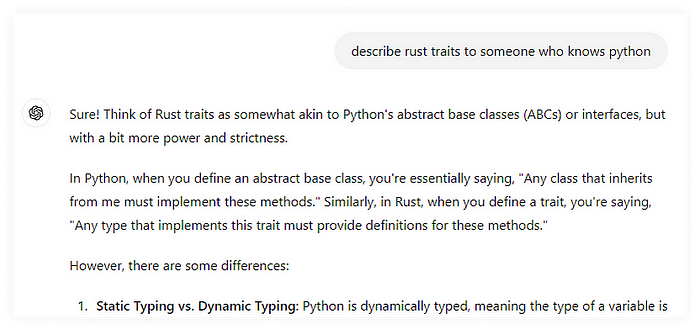
ChatGPT doesn’t judge me for asking basic questions
Fleshing out user stories
While ChatGPT won’t be great at suggesting features to build (these should really be driven by your customers), many features are generic enough that it can have a decent stab at describing them with little context.
This is especially true in the context of user stories for standard features — which, if you’re building a new product, there will be a lot of (think login pages, sharing, messaging, deleting, etc.).
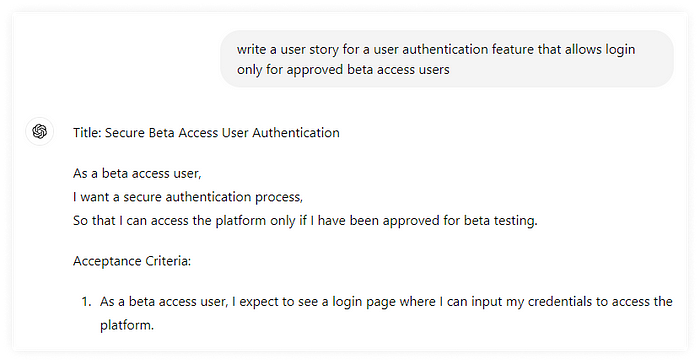
ssshh. No one will know 👀 How will they know?
Obviously, these will need to be reviewed, but for the most part, ChatGPT does a good job, given user stories follow a pretty strict formula. ChatGPT helps save time doing what otherwise feels like a documentation exercise. The cherry on top is ChatGPT is actually pretty decent at suggesting acceptance criteria I would otherwise forget to include.
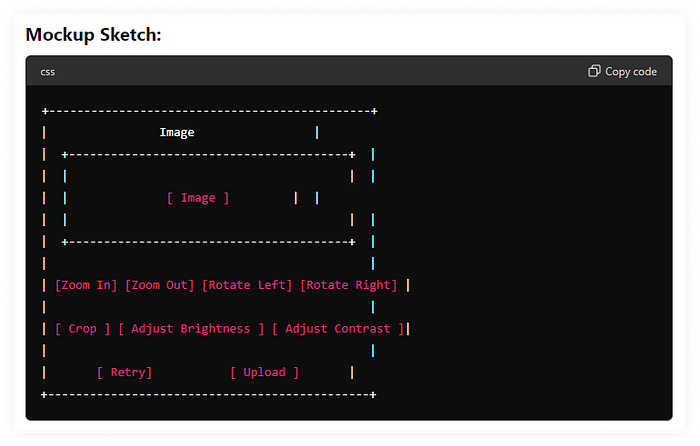
ChatGPT even attempted to draw me a mockup for my feature 🥹
Drafting messages for a stakeholder
At an early-stage startup as a Product Manager, there is usually a prime opportunity for… conflict. Heated debate. General spiciness. 🌶️
During these times, it can be hard as a human to be completely rational and objective in my replies. But you know what is coldly rational? A computer.
I’ve used chatGPT to help me check my tone, soften my language, and refine messages before sending to stakeholders, lest I unintentionally set tensions flying with my sass.
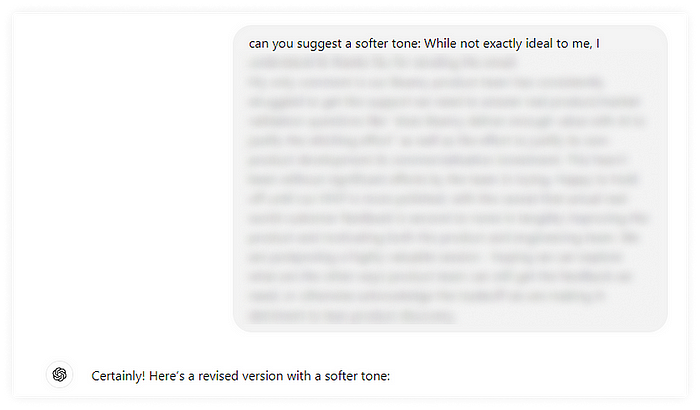
ChatGPT keeps the peace
Draft my emails
I hate emails. I’m an avid overthinker (did I put too many exclamation marks? Too little? Do I sound too keen? Do I sound too cold? Am I being too polite? Should I add an emoji? Did I have a typo?).
It’s worse, given most of my emails are sent to external customers and users. I usually end up having to rewrite 70% of it, but at least I get a nice template to work off.
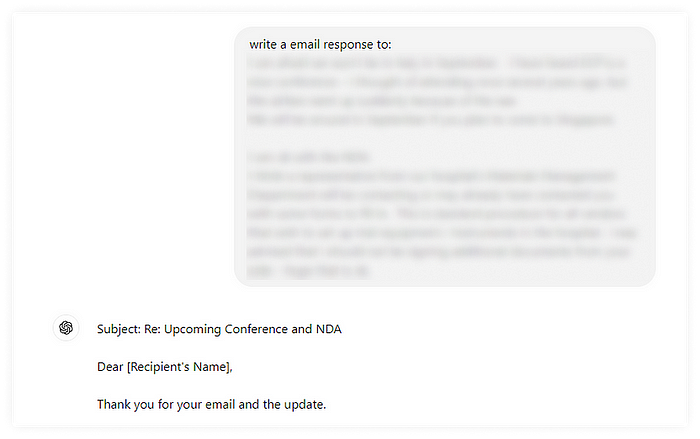
I look forward to the day when I can replace my out-of-office email with chatGPT
Analyse my data
We don’t have dedicated Business Analysts or Data Analysts at my company. If we want to investigate the data, we either do it ourselves or convince (bribe) an engineer.
ChatGPT has been an absolute godsend for this. It’s not as simple as asking ChatGPT to ‘analyse my data’ or ‘give me key insights based on this data’ (yet). I’m usually quite prescriptive in what I’m after — I know how I want the data processed, but I want chatGPT to translate that into Python for me (or whatever language you’re using). This will probably require you to understand the fundamentals to begin with, as ChatGPT may on occasion churn out useless (but convincing) code.
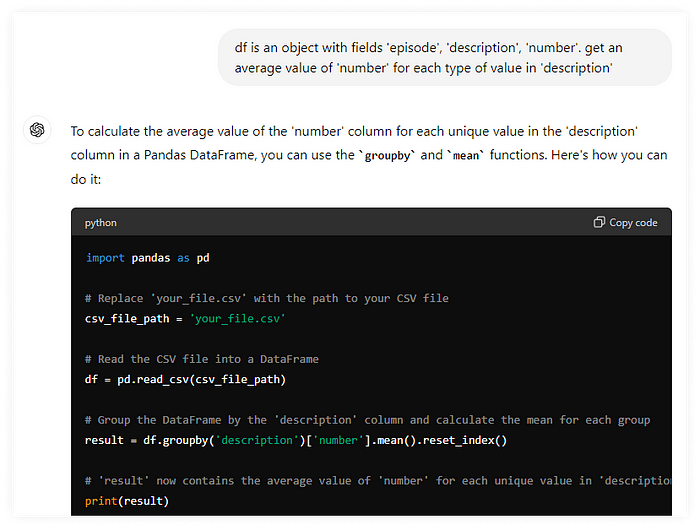
Not much has changed from my Stack Overflow process tbh: Copy, Paste, Pray it works🙏
Helping me Prototype
Along similar lines as the previous example, I often need to familiarise myself with a tech prototype for user testing.
Since ChatGPT came out, I haven’t written a single line of code myself (for better or for worse…). Unfortunately, it’s like relying on a calculator for so long that I’ve forgotten how to do basic division.
As a Product Manager, however, ChatGPT is perfect because my coding sessions are so infrequent and far in-between — but ChatGPT needs no warming up. Rather than relying on engineers to debug or make small changes to a prototype, I can safely do this myself (without risking blowing up the production product and having the engineers hate me).
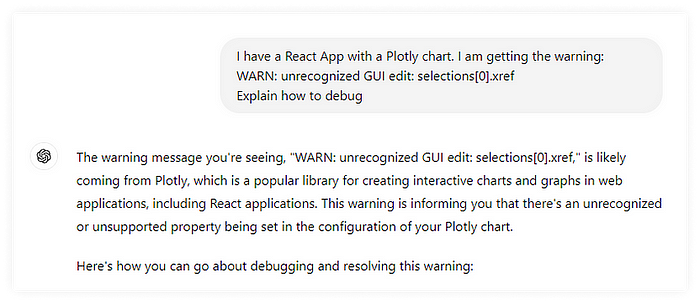
ChatGPT is my 24/7 on-call support
Doing my performance review
I love selling and marketing my product.
I hate selling and marketing myself.
Self-reflections are often tedious for me to write — I hate the jargon, fluffy language, and the general awkwardness of patting myself on the back. Given enough context, ChatGPT is usually great at filling in the blanks and not shying away from promoting my achievements (where I might otherwise sell myself short).
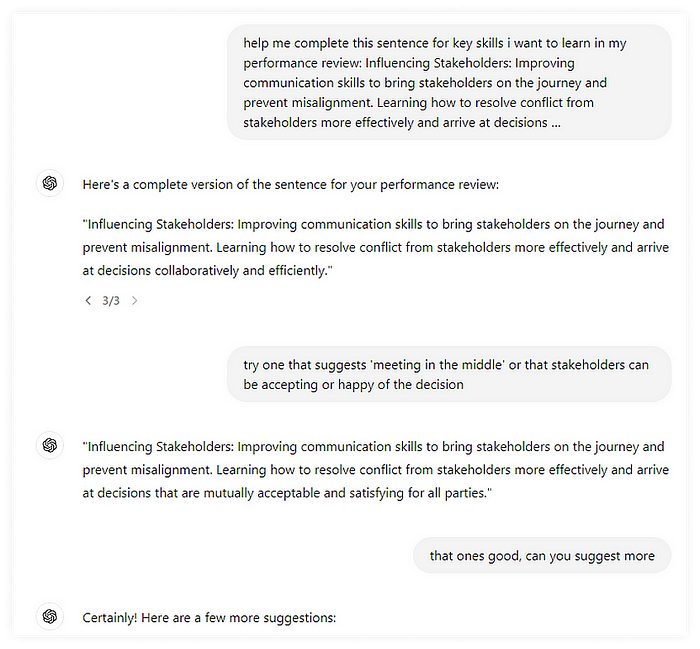
I hope my manager doesn’t see this
For the most part, my ChatGPT questions have been quite constrained and structured rather than open-ended. I’ve seen some pretty fancy applications of ChatGPT in PM work — from customer support and hosting product Q&A, to querying user research and conversing with your user personas.
I’d love to try these one day — although my gut feel is ChatGPT won’t entirely replace the need for me to go and do these tasks myself (yet). My workplace is also quite strict with our security protocols, and these applications would require using a tool that ingested a lot of sensitive company data (not a particularly appetizing prospect).
So for now, I’ll stick to these simple, boring, but tried-and-true applications to make my life just that little bit easier.




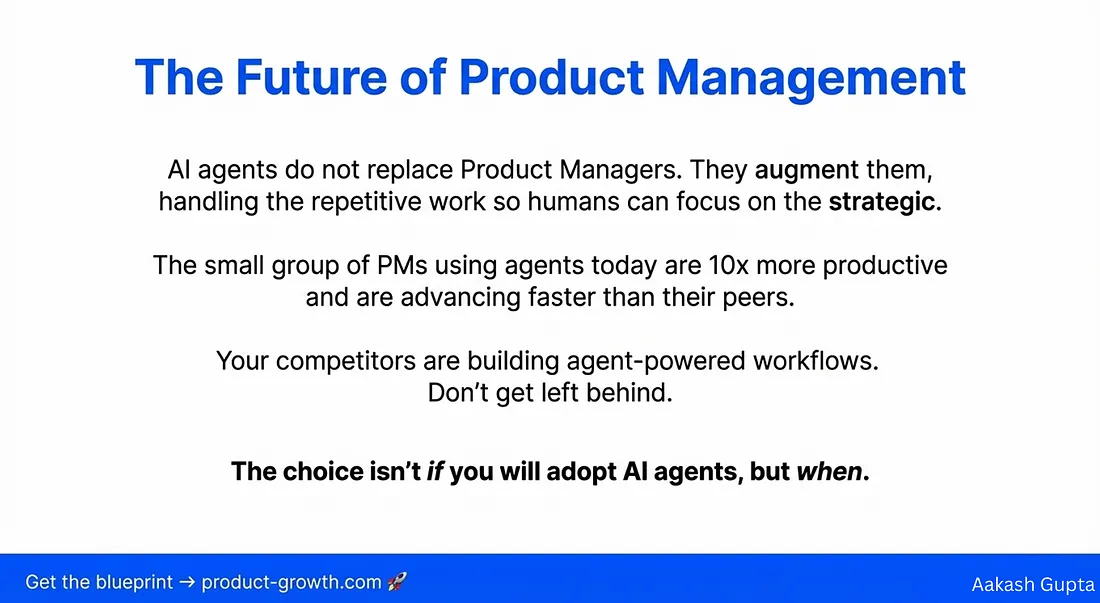
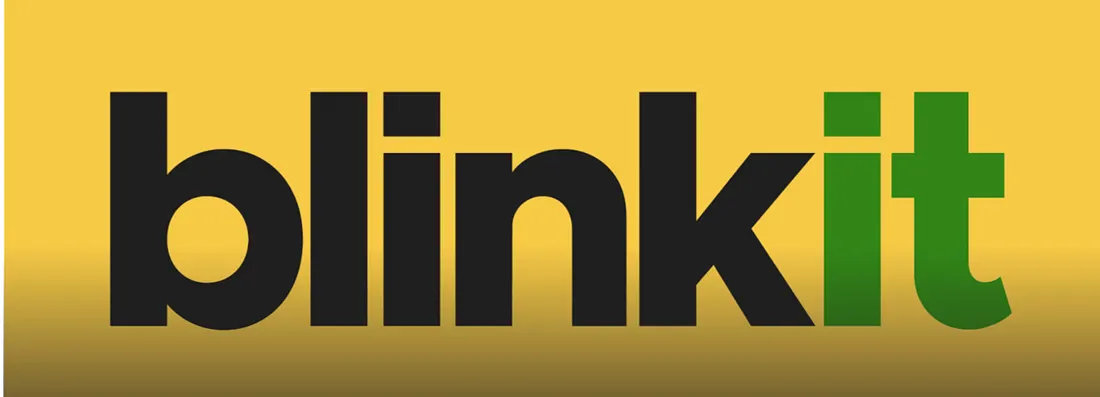
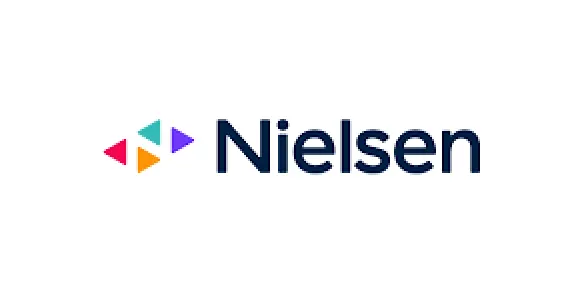

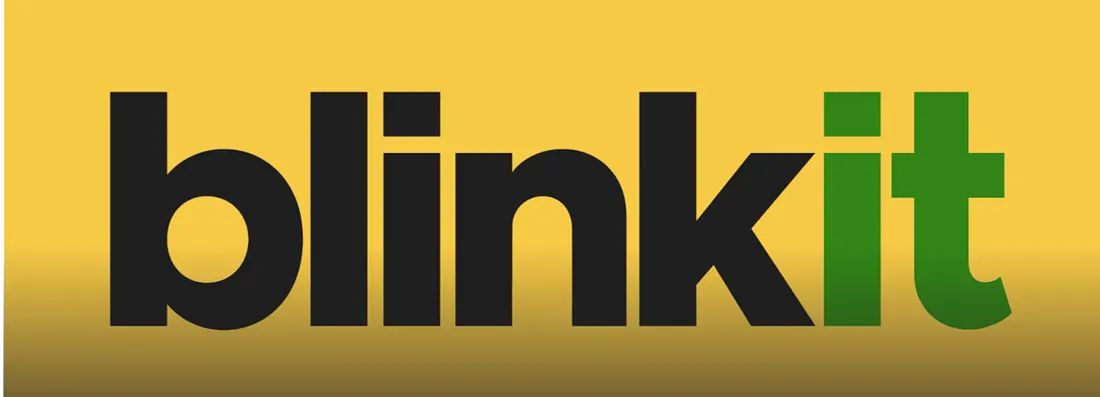

Comments ...
No Comments Yet ...Add One